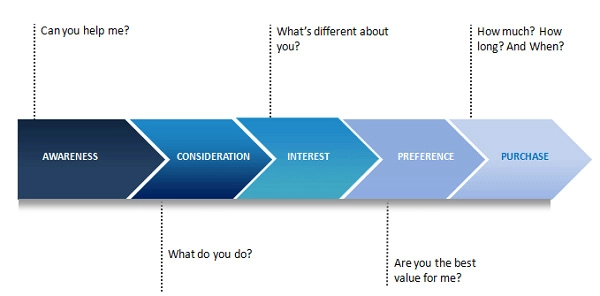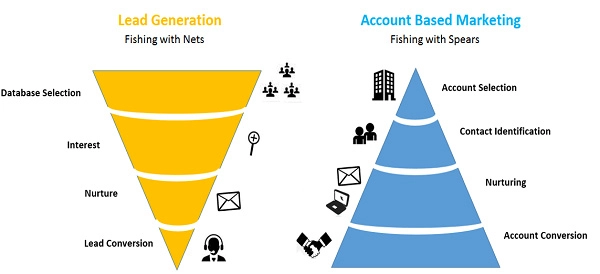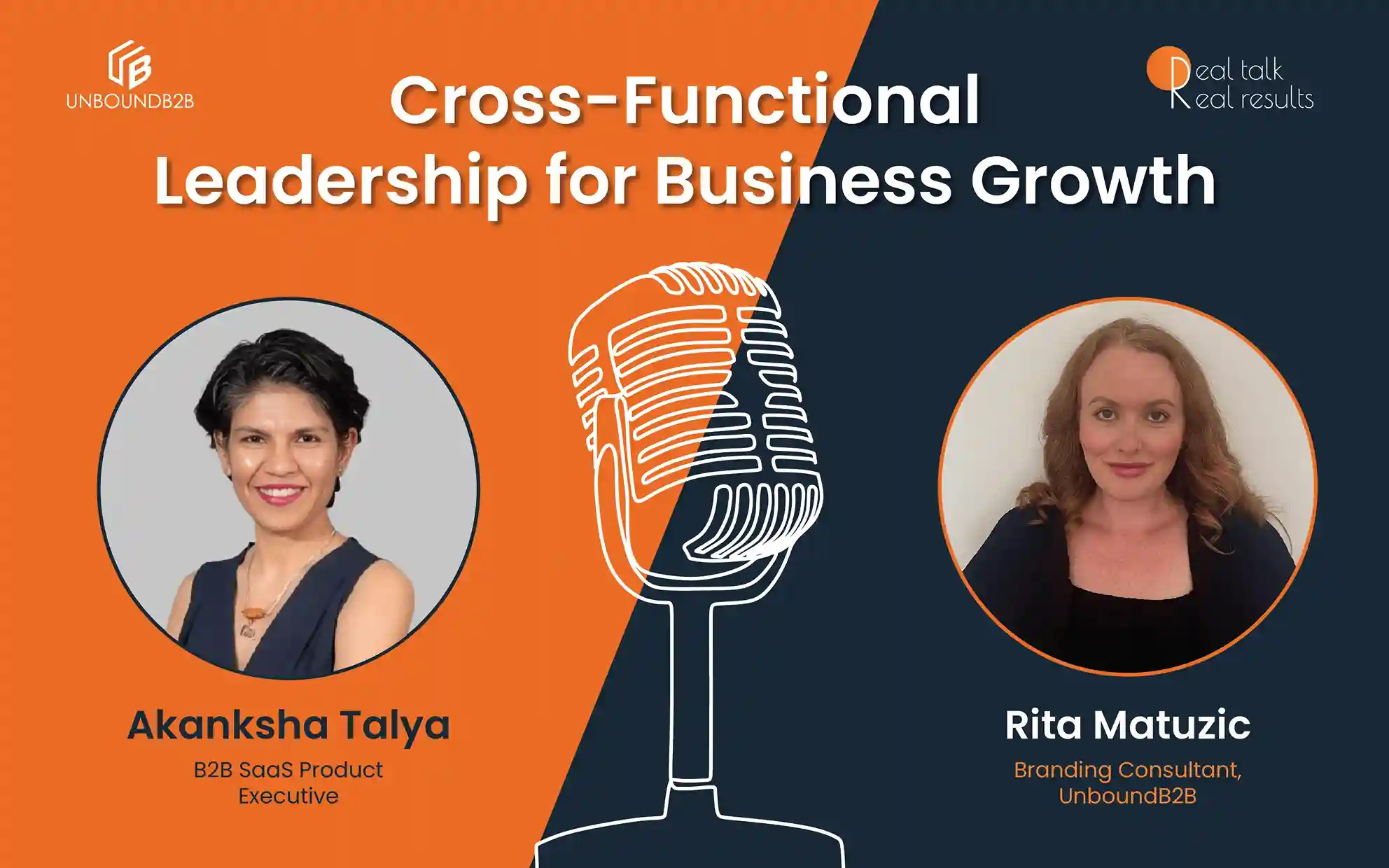
Introduction
From creative requirements to budget restrictions, marketers face various challenges while building a marketing strategy.
However, it also lets B2B marketers find a unique way of representing businesses and products to the audience via marketing.
The interest of the audience will also vary as time changes. So, you need to target your audience accordingly.
You have to keep in mind that marketing to an individual is way different from marketing to businesses.
Therefore, B2B marketers will have different opportunities and challenges in 2021, which we’ll discuss in this article.
Without further ado, let’s start.
Challenges For B2B Marketers In 2021
To meet the audience’s needs in 2021, you’ll face new challenges, so it’s better to be prepared for what we’re up against.
Better ROI for Marketing Efforts
The second biggest challenge for B2B marketers is to prove ROI from their marketing efforts, leading to a lower marketing budget.
In a nutshell, you have to prove:
- How much revenue did you generate with your marketing efforts?
- Why should you get the marketing budget as you demanded?
- Are you going to generate the number of leads in the marketing budget?
Proving the ROI is challenging for B2B marketers because there are various variables and touchpoints in marketing.
It gets more difficult to prove when you use various marketing platforms for promotions because you cannot define KPIs.
As people turn up to online shopping and other purposes, you need to track various activities, such as website traffic, organic traffic, bounce rate, etc.
If you’re running a campaign on social media, then you need to track impression, engagement rate, cost per result, frequency, and more.
Tip: To be able to measure KPIs, I’d suggest you set marketing goals appropriately.
Establishing Brand Identity
In a strong competitive world, a B2B marketer should be able to differentiate himself by representing a business’s value, identity, and reputation.
After the pandemic, all businesses, including the big brands, are also adopting online promotions, and it’s challenging to withstand in the marketplace.
As a B2B marketer, you have to promote business on various platforms, such as webinars, social media, podcasts, and more.
B2B marketer’s primary objective of brand identity is to keep the vision and message consistent across all the platforms.
But why?
Whenever a customer interacts with the brand, it forms a sort of association. So, if you don’t have consistency, it’ll have an impact on brand identity.
Also, an inconsistent message, vision, and mission lead to unfulfilled brand establishment.
For example, a B2B marketer promotes an online store worth buying products, but the social media handles are not up to the mark.
If you don’t strategize your marketing appropriately, you might lose out; that’s why establishing brand identity is one of the biggest challenges.
Generating B2B Leads
In B2C, companies directly market to the customers, after which the customers order the product because of their needs or impulse buy.
However, the buying process in B2B is much more complicated.
You may know some strategies for generating B2B leads, but it’s essential to understand the challenges you may face.
The biggest challenge for B2B marketers is to generate high-quality leads, i.e., the potential to convert prospects into paying customers.
If you send emails directly, then your tactics will be considered spam, and if you got leads – it’d be once in a thousand emails.
Instead, perform extensive research to identify your audience’s pain points and solutions you can provide. Afterward, send emails or run online campaigns.
Along with that, try to build personal relationships with your audience to communicate with them effectively.
Once you provide the appropriate solution to your audience, they’ll become your affiliates by referring you to their colleagues.
Opportunities for B2B Marketers in 2021
In today’s world, businesses need transformation, so apart from challenges, B2B marketers get various opportunities as well.
We’ll be discussing the winning approaches that B2B marketers could make most of it even after the pandemic.
Leverage the Virtual Conference and Meetings
After the 2020 pandemic, virtual events become the most common communication channel among professionals, including meetings, conferences, webinars, etc.
Either it’s a meeting or a college reunion, everybody wants to connect virtually via web-based platforms, such as Zoom, Google Meet, etc.

Source: Unsplash
As a B2B marketer, you can have various benefits by hosting virtual conferences, such as:
- Less Expensive –For the online events, you do not need to hire a staff, book a venue, meals, travel costs, and more. The only price you have to pay is the subscription fees for the web platform.
- Flexibility and Convenience –The attendees can easily access and attend the online live sessions, and they can also access the pre-recorded content, which is not possible at offline events.
- Easy to Collect Feedback –Asking for feedback in-person is a bit difficult and tedious task. On the other side, you can efficiently conduct real-time pools and surveys in between the sessions in virtual events.
- Ensures Effective Networking –Meeting and interacting with other members is easier in virtual events. Either they can have a live chat or connect over email and build business relationships.
- Measure Results Effortlessly –Although measuring results is much more dependent on the platform you’re using for the online event, you can track other things efficiently, such as the number of people attending the event, fees they’re paying, and more.
The key to moving forward is following the trends and leveraging the opportunities to optimize your marketing strategies.
Understanding the Individual Buyer’s Journey
As a B2B marketer, recognizing the buyer’s journey will help you optimize online campaigns and make better decisions.
You’ll find various stages of the buyer’s journey defined by experts. However, I’d suggest the following steps as shown below image:

Source: Komarketing
After the pandemic, most people prefer online shopping so that a B2B marketer can take it as an opportunity and show products to the prospects via ads.
You will gradually see the marketing campaign’s positive response, which ultimately leads to a better conversion rate and boosts in sales.
The B2B marketer’s primary objective should be to come up with the solution and showcase it to prospects through various marketing platforms.
For the B2B companies, the buyer’s decision is entirely non-linear, so you need to target different buyer personas every time.
You might be thinking, “How do I make the most out of the buyer’s journey?”
I recommend developing a process where you analyze the customer’s challenges and the strengths of your offerings.
Once you experience what the prospect goes through at every stage of the buyer’s journey, you’ll outstand the competition.
With the understanding of how prospects make an actual purchase, you can create a cost-effective marketing campaign.
Key to Account-Based Marketing
Generally, account-based marketing (ABM) refers to the marketing where you work on highly targeted and personalized campaigns for specific accounts.
ABM is a crucial and worthy investment as 86% of marketers say it improves win rates.
Now, you need to understand that account-based marketing is different from outbound marketing.
Unlike traditional outbound marketing, you use strategies, such as cold calling, advertising, etc., to reach out to large potential customers.
Depending on the niche of your business, you have to practice the type of marketing.
In ABM, you first research and segregate your potential customer and then run campaigns to target those audiences only.

Source: Neil Patel
You might be wondering, “Should I go with account-based or outbound marketing?”
Each marketing has different aspects based on their audience, although there are certain benefits of account-based marketing, as mentioned below.
- Highly Targeted –To reach high-quality prospects, marketers build customer profiles who are most likely to purchase or subscribe to your products or services.
- Accounts-focused –Instead of a broader market, ABM focuses on target accounts so that you can run and optimize personalized campaigns for them.
- Better ROI –ABM lets you target in a personalized way, which increases the conversion rate, ultimately generating a better return on investment.
Last Words for B2B Marketers
For B2B marketers, complexity will be the daily ingredient, so you have to overcome the challenges by adopting the new opportunities.
An approach to the business transformation will let you connect with the prospects at a more profound level.
To stay in the long-run, marketers should know the challenges and opportunities they’ll experience for different businesses.
What other challenges and opportunities would you think a B2B marketer face? Tell us in the comment section below.
Our blog
Latest blog posts
Tool and strategies modern teams need to help their companies grow.

Programmatic ABM combines the effectiveness of targeted engagement with automation. I...

Take advantage of the year-end holiday rush so you can boost your SaaS revenue and st...

Boundaryless, cross-functional leadership is the key to successful, high-performing p...






